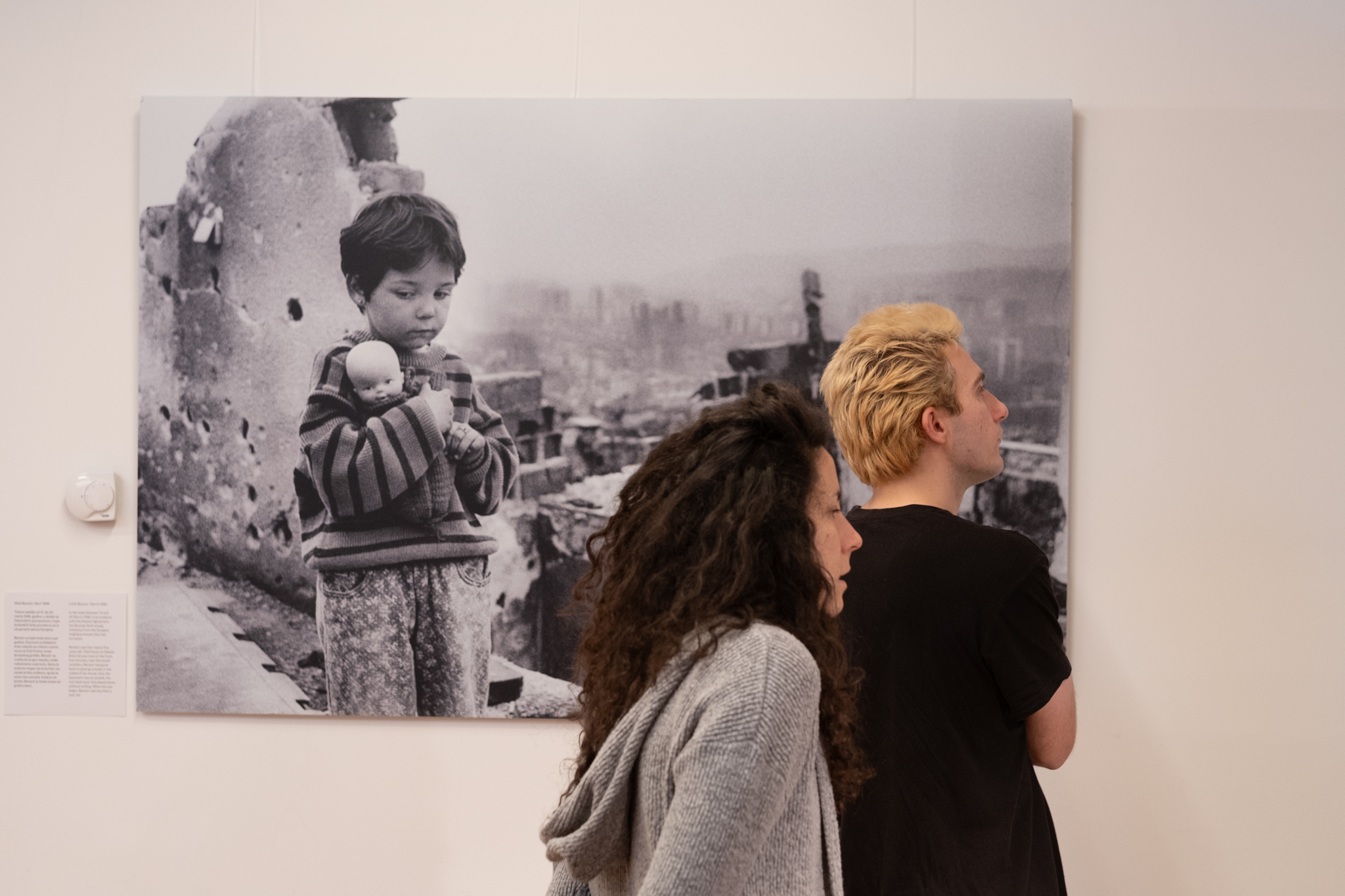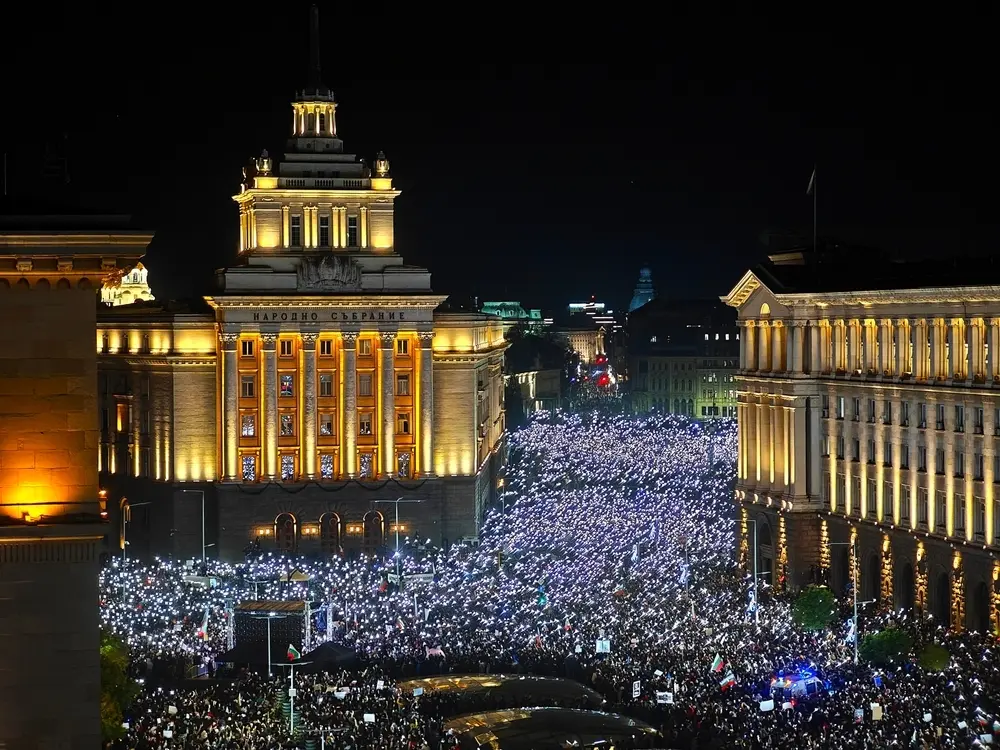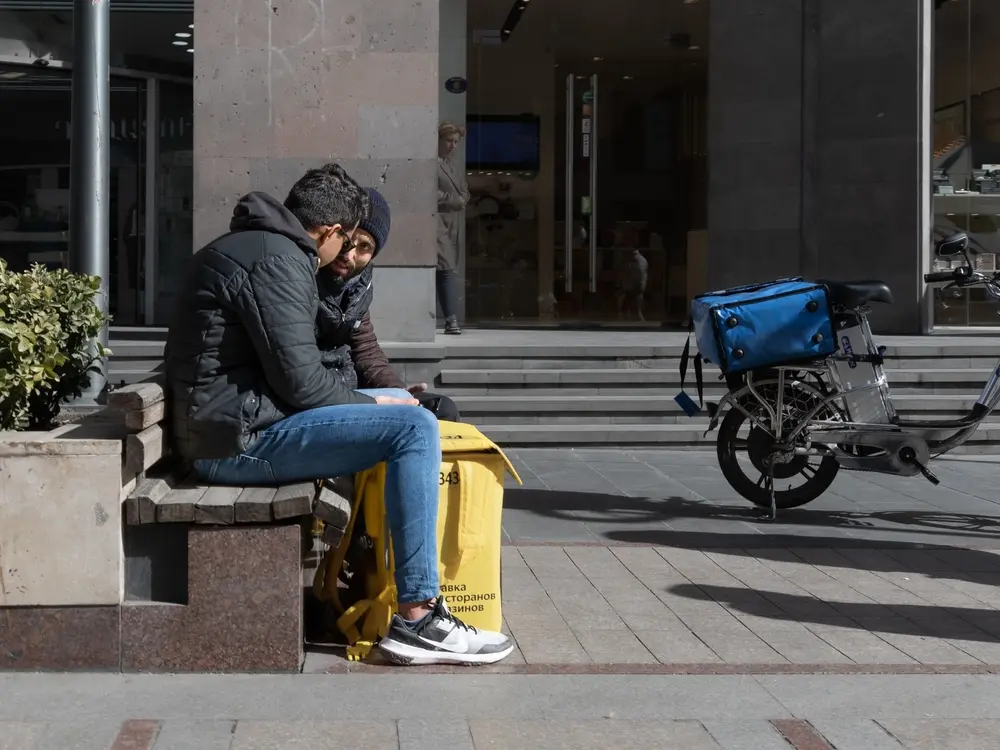Nis Film Festival 2002
Uno dei più importanti eventi cinematografici di tutta quanta la ex Jugoslavia. Ora senz’altro il più importante evento riguardante il cinema in FRY. La storia e le vicende del Festival racontate in un reportage di Mihailo Antovic da Nis.
The film industry has been one of the trademarks of Yugoslavia, former and present. In the postwar era it developed extensively, so that in the period between 1970-1990 it became the leader in eastern Europe. Yugoslav actors in particular have been respected and admired both at home and in the nearby countries. This is why there has been a long tradition of summer film festivals. Each summer a caravan of actors, directors, writers, producers and other film staff would travel all along the former country, participating in a series of festivals. The most important ones were the opening festival, organized each June in Pula, today Croatia, and the closing one, performed the final week of August in Nis.
A history of the festival
The Nis Film Festival has always been dedicated to actors and acting. Officially named "Festival of Actors’ Achievements of the Yugoslav Motion Picture" or popularly known as ‘Film Actor Gatherings’ it has attracted the most important names of the Yugoslav acting scene for the last 37 years (the first one was organized back in 1965). More than once foreign actors have come to the event, too. The most memorable event was in 1971 when then the world’s leading acting love couple, Richard Burton and Elizabeth Taylor visited Nis Festival for two days. At the time, they were shooting the Yugoslav World War II saga ‘Sutjeska’, made after one of the numerous partisan myths of the second war, in which Burton had the role of no less than Yugoslav leader Marshall Tito. The following years saw the Nis Festival developing, so that in the eighties 7 days of two-film-a-night performances were not enough for the ever more productive Yugoslav filmmakers. In the late eighties, appearance at the festival became a matter of competition, and not all Yugoslav films made that particular year were able to pass strict selection.
In the seventies and eighties, Nis lived for the Festival and little more than that. Back then, it was a town off the main track in the former Yugoslavia, not in the least comparable with Sarajevo or Skopje, not to mention Belgrade, Zagreb or Ljubljana. In the nineties, when the country was divided, it was perhaps only Nis of all former Yugoslav towns that profited. It spread in size, and it also became a major regional centre with some cultural events too. Its political importance also became more obvious, especially after the fraud at the local elections of 1996. As for the Festival, it remained, but was reduced to the bare essentials. During the wars and the inflation of the early nineties, there were hardly any movies to be made – three or four, of suspectable quality, were the most one could get. With the motto ‘The tradition must be upheld!’, the Festival was organized every year, but with more movies of dubious merit. It soon turned into its own mockery, as everything else did in that bleak period.
… this year
This is why this year’s Film Festival had been anticipated with some concern. For the first time it was headed by an actor, the famous Yugoslav actor Dragan Bjelogrlic, known to the world film viewers by a leading role in Dragojevic’s depiction of the Bosnian war "Pretty Village Pretty Burn" (for which he was awarded the ‘best actor’ prize exactly in Nis five years ago). A good actor indeed, it was his financial capacities that were questioned by the media and the public. However, once the festival started, most suspicions luckily turned out to be unfounded. True, there were some flaws in organization (but nothing is worse than Cannes, visitors say!), most events were late, some guests failed to appear, almost no tickets were for sale, since most had been given out to sponsors, and rain was simply irritating in the first two days. Accommodation was a problem too – Nis has no decent hotels (the major problem of the town!), and there were four times more guests than expected (how do you say to a famous actor ‘Go home, there’s no room!’ even though you haven’t invited him/her to the Festival?!). And yet the sheer number of celebrities constantly arriving signaled something had obviously changed for the better this year.
The first evening of the Festival was indeed a surprise – the summer auditorium in the ancient Nis Fortress (the regular site of the event) was as packed as it had seldom been. The anxious crowd totaled 5,000, not counting numerous military police all around, guarding the Federal Prime Minister, Chief of Staff General, Federal Vicepremier and presidential candidate, another actor and presidential candidate, Federal Police Minister, the Mayor and who knows who else. For the next six evenings no less than 15 movies were performed, out of which five were Serbian premieres, seven were reruns, and three were international films (the Icelandic Seagull’s Laughter, the Czech Dark Blue World and the Slovene Echoing in the Head). After each film, the crowd had the opportunity to see the protagonists live on the stage, and it also voted for the actor of the evening. The last day of the Festival, prizes were awarded ( a total of 8 official and 5 unofficial prizes) to the best of actors, and it was noticeable this time most of the awards were given to rather young stars, an interesting and laudable development. The senior Yugoslav comedian Miodrag Petrovic Ckalja was given a prize for his life’s work in this profession.
Some new aspects of the festival
A number of supporting events were also organized during the Festival. Contrary to the usual feasts with actors in the local restaurants, this time they included press conferences and three panel discussions on the future and financing of Nis Festival. Participants admitted no Cannes or Venice could be expected over here in the near future, but added Nis should become the leading southeast European festival with some international participation every year. The discussions were tracked by about fifteen foreign journalists, including Mr. Ron Howard, one of the leading names in the world of film criticism, and an American, currently living in Germany. There were also master classes on casting for young actors, moderated by Ms. Janette Snik, a top professional in the business from Amsterdam. Other events included a small tennis and basketball tournament, a few short trips for the actors to the nearby sites, promotion of two new books for film fans and a few exhibitions.
Participation of foreigners was indeed a new reality, and organizers promised they would try to get someone from Europe to the Festival every year. Guests also promised to spread the news of the Nis Festival in the West, perhaps already in Venice, where there is currently the famous yearly event in progress. Guests from France were particularly interested in reestablishing cooperation with the Yugoslav film community. They added that the French public, and European public as well, should know that much more good material is being made here than what Mr. Emir Kusturica is doing. And they know only of the latter. Organizers announced two big presentations of the Yugoslav film in Athens, Greece (September) and Berlin, Germany (December). France and Italy have been mentioned for the next year.
It was during the long August night parties that actors made friends with the local population. It has always been the trademark of Nis – love of actors and acting. As Mr. Bjelogrlic says: "If I was already born in the Balkans, Serbia is a good place to be in this profession. First: Serbs love actors. It is the only country in the Balkans, and one of the few in Europe, where local films are more popular than Hollywood blockbusters… If you think of Serbian trademarks which you can sell in the big world they are probably: raspberries, cheese, brandy, plasma candies and… actors. That sells well and that we should preserve! This year we got some new spirit into the Festival and the auditorium was as crowded as ever… We expect to preserve this in the following years."
Other events in Nis
As for Nis, it has regained the reputation of a good host to actors. Even more than this. Prior to the Film Festival there had been at least two other important cultural events in the town this summer. The first one was the Choral Festival, once Yugoslav and now also International, organized biennially in July. It hosted a number of quality choirs from the country and abroad and reestablished its once good reputation as well. Additionally, only a week prior to the Film Festival there was ‘Nisomnia’ – a sort of a counterpart to the much bigger Novi Sad ‘Exit’ Festival. It was a three-day rock / techno festival, with practically all important Serbian bands, plus numerous DJ’s from abroad, notably Great Britain, a fine Dutch rock band, and two rock stars from Croatia we hadn’t seen in years over here – Neno Belan from Split, once frontman of the famous band ‘Djavoli’ (the Devils), and Ramones-like rock machines Psihomodo Pop from Zagreb. During those three days, the old Nis fortress was also as crowded as one would always like it to be. Nisomnia was much smaller and less ambitious than its Novi Sad big sister, but it was a nice set of events, very well visited, with lots of positive energy, and, importantly, with almost no undesirable side effects: the police reported less than 10 minor arrests and only one small fight.
The issue then is the following: can Nis in August become the Edinburgh of southeastern Europe? So far there are three separate festivals, each with its tradition, audience and field of interest. With some more events, such as, say, exhibitions, fringe theatre or more classical music, perhaps this town could host a series of important cultural happenings simply entitled ‘Nis Summer Festival’. This does take some effort, money, and good infrastructure (hotels foremost!), but it does not seem so far fetched after all. Geographically and due to its size, Serbia does deserve it, and it would turn the until recently small and ugly Nis into a local cultural metropolis. We can only hope.
In evidenza
- Partecipa al sondaggio












